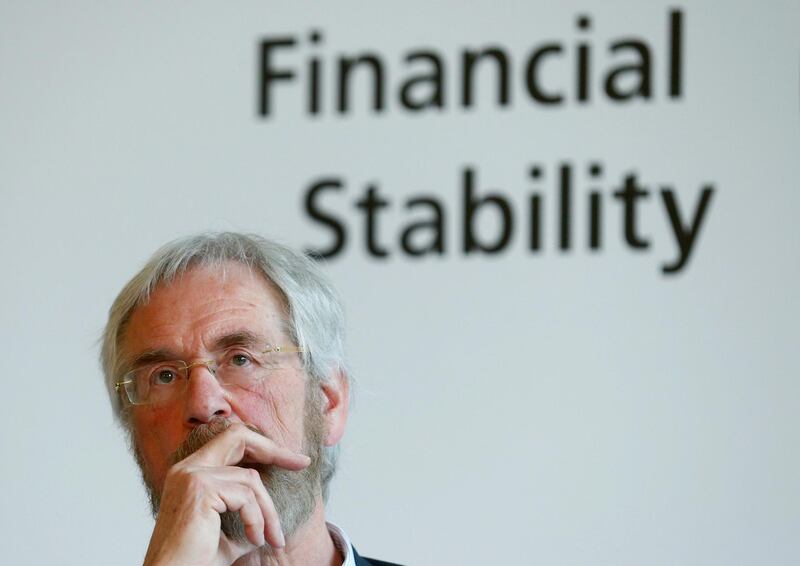The euro zone's era of massive excess liquidity, courtesy of the European Central Bank, is about to peak.
Next week, lenders must repay €9 billion (Dh38.8bn) outstanding from cheap loans the ECB doled out in 2014-2016, when the bloc was teetering on the edge of deflation. Next month, the central bank will cut its monthly bond-buying program by €15bn, and stop altogether at year-end.
In a speech on Thursday, ECB chief economist Peter Praet presented a model that projects excess liquidity - the cash beyond banks' immediate needs that is sloshing around the financial system - will peak at about €2 trillion around the end of this year and drop below €500bn in 2022.
Mr Praet's comfort with that potential trend reflects the euro area's solid economic growth even in the face of risks such as US trade protectionism. Nevertheless, President Mario Draghi's suite of stimulus measures in recent years has subdued bond yields, weakened the single currency and boosted stocks to drive the region's recovery, raising concern that any tightening will further drag on an already slowing expansion.
_______________
Read more:
[ Pound slides after May sticks to Brexit guns ]
[ EU: Chequers Brexit deal risks harming the single market ]
_______________
The ECB takes the view that the loans, known as TLTROs, and quantitative easing mean the bloc is now well placed to cope with slightly steeper borrowing costs as excess liquidity shrinks. Policy makers expect to keep official interest rates unchanged "at least through the summer of 2019," and have acknowledged market expectations for a hike late next year.
"With the repayment of TLTRO funding and the end of QE purchases, the size of the monetary base will shrink, reducing the amount of stimulus provided to the economy. However, with the output gap nearly closed and GDP growth continuing at a decent pace, there should be little concern
about that,"said David Powell, economist at Bloomberg Economics.
The decline will initially be slow. The loans that fall due on September 26 are all that remains of €432bn that were issued. Some were repaid early, while most of the rest were rolled over into a more-generous second program that starts maturing in 2020.
The bond-buying program will be capped at €2.6tn at the end of the year, but the proceeds of maturing debt will be reinvested to maintain the size of holdings. The ECB simulation made an "arbitrary" assumption that those reinvestments will continue until December 2020.
"The ongoing economic expansion gives us confidence that inflation dynamics will strengthen," Mr Praet said. "In the more distant future, when the associated impact on long-term rates does eventually become significant, the measured tightening in financial conditions will be justified by the advanced phase of economic expansion which the economy will be enjoying at that point in time."






